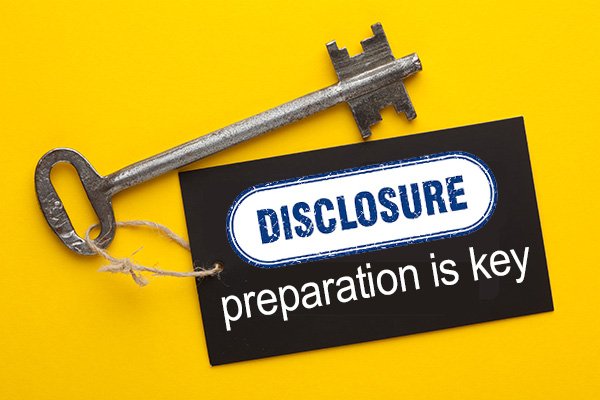
Blog

The Power of Couples Counseling: Navigating Together Towards a Stronger Relationship
When both partners commit to couples counseling, a world of possibilities opens up. By investing in your relationship and prioritizing your collective growth, you are taking a powerful step towards a stronger, more resilient, and deeply satisfying connection.

Creating Healthy Boundaries: Nurturing a Stronger Sense of Self and Relationships
Boundaries are the invisible fences we establish to protect our physical, emotional, and mental well-being. They serve as a guide to help us clearly define what is acceptable and what is not, both for ourselves and in our interactions with others.

Building a Strong Foundation: Exploring the Different Parts of the Gottman Relationship House
Gottman Relationship House can help couples navigate the challenges they face and build a loving and fulfilling partnership.

Supporting Your Journey to Healing: A Daily and Weekly Check-in Guide for Couples Recovering from Betrayal
As part of the recovery journey, regular check-ins can be an invaluable tool for fostering open communication, understanding, and growth within your relationship.

How to Navigate an Emotionally Invalidating Partner: Tips for Emotional Wellness
Relationships can be challenging, but when you add an invalidating partner, things can get downright distressing. An emotionally invalidating partner can make you feel unheard, unseen, and unimportant.

Healthy vs. Unhealthy Guilt: Nurturing Your Mental Health
Guilt is an often overwhelming and complex emotion that can wreak havoc on our mental health if left unchecked. It's important to understand that guilt, like any emotion, can be both healthy and unhealthy. By recognizing the difference between the two, we can nurture our mental well-being and find healthier ways to cope with our feelings.

So How Does Full Therapeutic Disclosure Work?
In Full Therapeutic Disclosure, the information is carefully prepared with the guidance of a specially-trained CSAT therapist. Ideally, the one revealing their secrets will have achieved 90 days of sobriety and will have worked closely with their therapist for 3-4 months to create a thorough document outlining what happened, with whom, where, and how the betrayal occurred, as well as where the money was spent.

Full Therapeutic Disclosure: An Important Step in Healing
We understand the importance of full therapeutic disclosure in the recovery process. In the journey toward healing and recovery, full therapeutic disclosure plays a vital role in fostering understanding and facilitating growth within intimate relationships.

Unveiling Shame: Navigating the Path to Healing Infidelity
Many individuals who struggle with pornography, sex addiction, and infidelity may find themselves weighed down by feelings of shame. Shame is a powerful emotion that can cause deep pain and isolation, but it is important to understand the difference between healthy shame and toxic shame in the recovery process.

Understanding the Karpman Drama Triangle: Breaking Free from Unhealthy Patterns
The Karpman Drama Triangle illustrates the roles people often take on when caught in harmful relational dynamics. When in conflict, individuals move around this triangle. The triangle consists of three positions: rescuer, victim, and persecutor.

Embracing Self Esteem and Self Compassion: A Journey Towards Healing
Explore the contrasts between self-esteem and self-compassion, and how embracing both can lead to healing and personal growth.

Nurturing the Couple Bubble: Managing Thirds Together
In the journey of love, couples often encounter various challenges that can strain their connection. It's not uncommon for one or both partners to feel like a third wheel at times, struggling to maintain a sense of togetherness and harmony.

Why Your Attachment Style Might Be Behind Your Relationship Sabotage
There are four main attachment styles, but not everyone fits neatly into one. Depending on the circumstances in which you were raised, you might have a bit of two or three styles. The good news? They aren’t necessarily permanent.

4 Ways to Engage Conflict in a Healthy Manner
Disagreements are inevitable. Therefore, one of your top priorities as a couple is to improve how to handle such conflict. Having a fight is not a sign of dysfunction. Being unable to handle an argument in a healthy way typically is.

When Actions Speak Louder Than Words: The Power of "I Am Sorry"
"I am sorry" itself may not be enough to repair the damage caused. It is in the actions that follow those three words where the true healing begins.

What is Alexithymia? Understanding and Navigating Emotion Distress
Alexithymia is a psychological phenomenon characterized by difficulties in recognizing, understanding, and expressing emotions. People with alexithymia may find it challenging to identify and articulate their own feelings and the emotions of others. This can result in a sense of emotional detachment or disconnection.

How to Connect with an Emotionally Distant Partner: A Guide to Blame-Free Communication
In every relationship, there are times when one partner may feel emotionally distant. It can be challenging and even heartbreaking to reach out to someone who seems unreachable. However, it is important to remember that blaming them will not bring you closer.

The Art of Compassionate Assertiveness
Compassionate assertiveness is a communication style that prioritizes both your needs and the needs of the other person. It involves standing up for what you believe in while staying respectful and understanding towards others.

let’s talk with Teresa | The WHY, WHERE, WHEN, WHAT & HOW of a Fight
You can navigate conflict in your relationship in a way that you are heard and more fully known and that you are able to hear and better know your partner.

5 Things Happy Couples Have in Common
You may look at other couples and think what have they got that we don’t? What are they doing to keep the spark alive? While it’s important not to compare your relationship to others, sometimes, we can’t help but look at happy couples and wonder what makes them tick.
